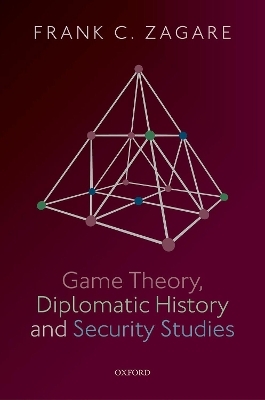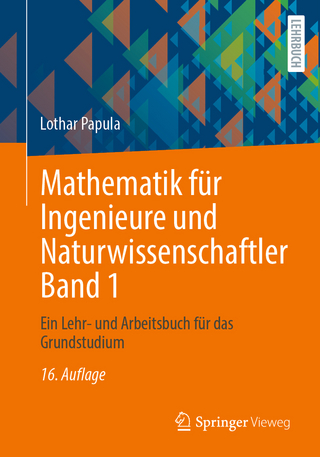
Game Theory, Diplomatic History and Security Studies
Seiten
2018
Oxford University Press (Verlag)
978-0-19-883158-7 (ISBN)
Oxford University Press (Verlag)
978-0-19-883158-7 (ISBN)
Game Theory, Diplomatic History and Security Studies provides an imformative introduction to the application of the mathematical theory of games in the fields of security studies and diplomatic history.
Known as the science of strategy, game theory is a branch of mathematics that has gained broad acceptance as a legitimate methodological tool, and has been widely adapted by a number of other fields.
Frank C. Zagare provides an introduction to the application of game theory in the fields of security studies and diplomatic history, demonstrating the advantages of using a formal game-theoretic framework to explain complex events and strategic relationships.
Comprised of three parts, the first illustrates the basic concepts of game theory, initially with abstract examples but later in the context of real world foreign policy decision-making. The author highlights the methodological problems of using game theory to construct an analytic narrative and the advantages of working around these obstacles. Part II develops three extended case studies that illustrate the theory at work: the First Moroccan Crisis of 1905-1906, the July Crisis of 1914, and the Cuban Missile Crisis of 1962. Finally, in Part III, Zagare describes a general theory of interstate conflict initiation, limitation, escalation, and resolution and rebuts criticisms of the methodology.
Logically demanding, Game Theory, Diplomatic History and Security Studies conveys an intuitive understanding of the theory of games through the use of real-world examples to exemplify the 'theory in action'.
Known as the science of strategy, game theory is a branch of mathematics that has gained broad acceptance as a legitimate methodological tool, and has been widely adapted by a number of other fields.
Frank C. Zagare provides an introduction to the application of game theory in the fields of security studies and diplomatic history, demonstrating the advantages of using a formal game-theoretic framework to explain complex events and strategic relationships.
Comprised of three parts, the first illustrates the basic concepts of game theory, initially with abstract examples but later in the context of real world foreign policy decision-making. The author highlights the methodological problems of using game theory to construct an analytic narrative and the advantages of working around these obstacles. Part II develops three extended case studies that illustrate the theory at work: the First Moroccan Crisis of 1905-1906, the July Crisis of 1914, and the Cuban Missile Crisis of 1962. Finally, in Part III, Zagare describes a general theory of interstate conflict initiation, limitation, escalation, and resolution and rebuts criticisms of the methodology.
Logically demanding, Game Theory, Diplomatic History and Security Studies conveys an intuitive understanding of the theory of games through the use of real-world examples to exemplify the 'theory in action'.
Frank C. Zagare is UB Distinguished Professor of Political Science at the University at Buffalo, The State University of New York (SUNY). Professor Zagare's main research interests lie in the nexus between security studies and game theory. His theoretical work has focused on deterrence, crises, conflict escalation, and bargaining and negotiation.
1: Game Theory and Security Studies
2: Game Theory and Diplomatic History
3: The Moroccan Crisis of 1905-1906
4: A Game Theoretic History of the Cuban Missile Crisis
5: A General Explanation of the Cuban Missile Crisis
6: Explaining the 1914 War in Europe
7: Perfect Deterrence Theory
8: Explaining the Long Peace
9: Postscript
| Erscheinungsdatum | 10.01.2019 |
|---|---|
| Verlagsort | Oxford |
| Sprache | englisch |
| Maße | 163 x 237 mm |
| Gewicht | 486 g |
| Themenwelt | Mathematik / Informatik ► Mathematik ► Angewandte Mathematik |
| Mathematik / Informatik ► Mathematik ► Finanz- / Wirtschaftsmathematik | |
| Sozialwissenschaften ► Politik / Verwaltung ► Staat / Verwaltung | |
| ISBN-10 | 0-19-883158-7 / 0198831587 |
| ISBN-13 | 978-0-19-883158-7 / 9780198831587 |
| Zustand | Neuware |
| Haben Sie eine Frage zum Produkt? |
Mehr entdecken
aus dem Bereich
aus dem Bereich
Buch | Softcover (2024)
Springer Vieweg (Verlag)
CHF 53,15
Buch | Softcover (2024)
Springer Vieweg (Verlag)
CHF 62,95
Anwendungen und Theorie von Funktionen, Distributionen und Tensoren
Buch | Softcover (2023)
De Gruyter Oldenbourg (Verlag)
CHF 97,90


